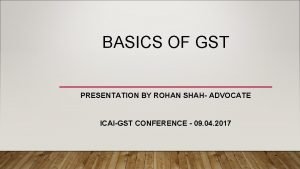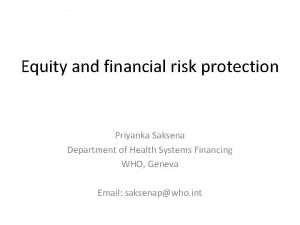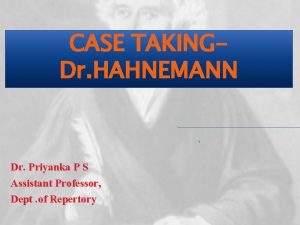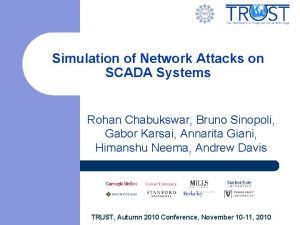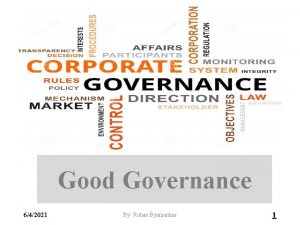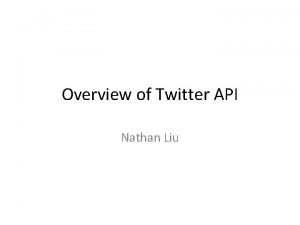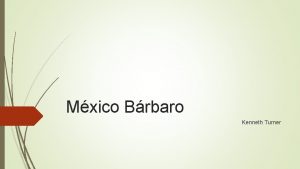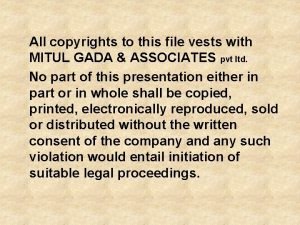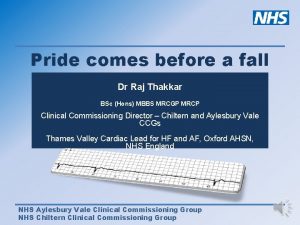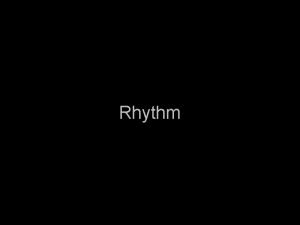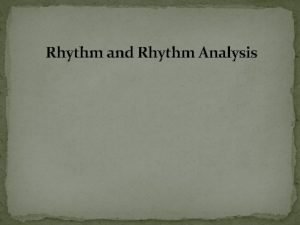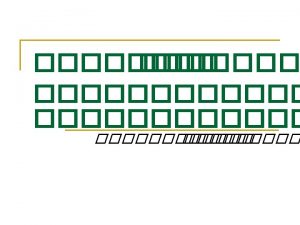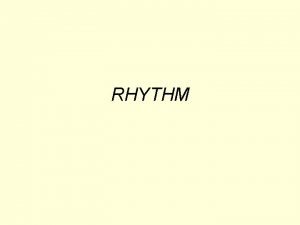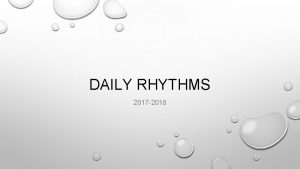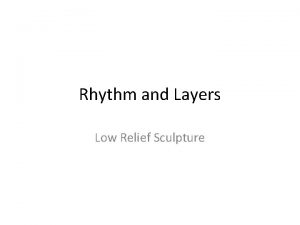OPERATING SYSTEM Priyanka Thakkar Rhythm Shah Rohan Thakkar
















- Slides: 16

OPERATING SYSTEM Priyanka Thakkar Rhythm Shah Rohan Thakkar Sarvesh Kapre Shardul Mahadik

WHAT IS IT? Ø Ø It is the first program to be loaded on boot. It is a software that acts as a bridge between the hardware and the applications. Manages the hardware and software resources of the system. Provides a stable consistent way for applications to deal with the hardware without having to know all the details of the hardware.

WHAT DOES IT DO? Ø Ø Ø Ensures that all the applications get the necessary resources. Manages input and output. Helps the developer to make applications compatible with many systems. Keeping track of the files and directories on the disk. Controlling peripheral devices such as disk drives, printers and scanners.

HOW IS IT CLASSIFIED? Operating System Based on Targeted Devices Desktop Based on Applications Mobile Real-Time operating system Single-user, single task Single-user, multitasking Multi-user

TIMELINE

WINDOWS Ø Ø Ø Released on November 20, 1985 by Microsoft. Developed by Paul Allen and Bill Gates. Graphical User Interface Over 80% market share in the home environment. Revolutionized the world by introducing personal computing. DID YOU KNOW? Vista sold 20 million copies within its first month

HISTORY OF WINDOWS Ø Ø Ø Ø 1975: Microsoft Boots Up 1982: Introducing Windows 1. 0 1990: Windows 3. 0 - Getting the graphics 1995: Windows 95 – the age of PC and the Internet 2001: Windows XP - Stable, Usable and Fast 2006: Windows Vista - Smart on security 2009: Windows 7 and counting. . . DID YOU KNOW? You can’t create a folder called ‘con’ in Windows!

UNIX Ø Ø Developed in 1969 by a group of AT&T employees at Bell Labs, including Ken Thompson, Dennis Ritchie Designed to be portable, multi-tasking and multiuser in a time-sharing configuration. A self-contained software system. Easy to adopt and move to different machines. DID YOU KNOW? UNIX systems cannot set a date prior to 1 Jan, 1970!

LINUX Ø Ø Ø Launched on 5 October 1991 by Linus Torvalds. Free and open source software. Highly secure with no viruses. Runs on a highly diverse range of devices ranging from mobile phones to supercomputers. Used in 90% of world’s fastest supercomputers i. e. the TOP 500. DID YOU KNOW? The latest Linux kernel has over 10 million lines of code!

LINUX Ø Ø Android is based on a modified version of the Linux kernel. Power to modify almost anything in the system files. Kerala has mandated that all state high schools run Linux on their computers. Interesting naming convention starting with version 5. 10 Breezy Badger going up alphabetically to 12. 10 Quantal Quetzal.

MACINTOSH Ø Ø Ø • • • Launched in 1999 as Mac OS X Server 1. 0 First release was Public Beta on 13 Sept, 2000. Main reasons for criticisms were Interface Stability Missing Features and Hardware Compatibility OS X Mountain Lion was released on July 25, 2012 with new features such as Notification Centre DID YOU KNOW? Application Update The original Apple logo had Game Centre Isaac Newton sitting under an apple tree.

COMPARISON PROPERTIE MAC S Security Good WINDOWS LINUX Poor Excellent Cost High Moderate Free Popularity Moderate High Moderate Ease of Use Moderate Highest Poor Targeted Designing Home Use Servers Flexibility Moderate Low Highest

5% STATISTICS 3% 9% Windows Mac 84% Linux Others Usage in Home Environment 1% 18% 3% 78% Usage in Server Environment Windows Mac Linux Others

WHAT’S HAPPENING? Ø Ø Touchscreen support introduced in Windows 8 Linux user interface made easier with the GNOME shell. Ubuntu Linux introduces 7 second boot. Mac OS X 10. 8 offers social network integration with Facebook and Twitter.

WHAT COMES NEXT? Ø • • • Cloud Boots Developed by Apple. Files are stored in the cloud. Memristor HP has created the first prototype of a working “memristor”. Booting time will be unimaginably short—we’re talking 0. 35 seconds. High-storage capacities at 100 gigabits per cm sq. and about 1 petabit per cm cu.

WHAT COMES NEXT? Ø • • • Ø • Two in One CPU and GPU are combined Displaying 3 D in Air Speed of GPU is 20 times that of the CPU. Laser produced plasma technology used to produce flashpoints in air. First successful project is on at AIST, Japan. Semantic Desktop Searches and interlinks the files with various other objects on the system.
